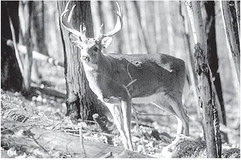Don’t change in- person testing requirements for hunter education


A plan to replace the hunter education field testing requirement with a mentored hunt weakens Wisconsin’s commitment to ensuring the safety of hunters of all ages.


A plan to replace the hunter education field testing requirement with a mentored hunt weakens Wisconsin’s commitment to ensuring the safety of hunters of all ages.